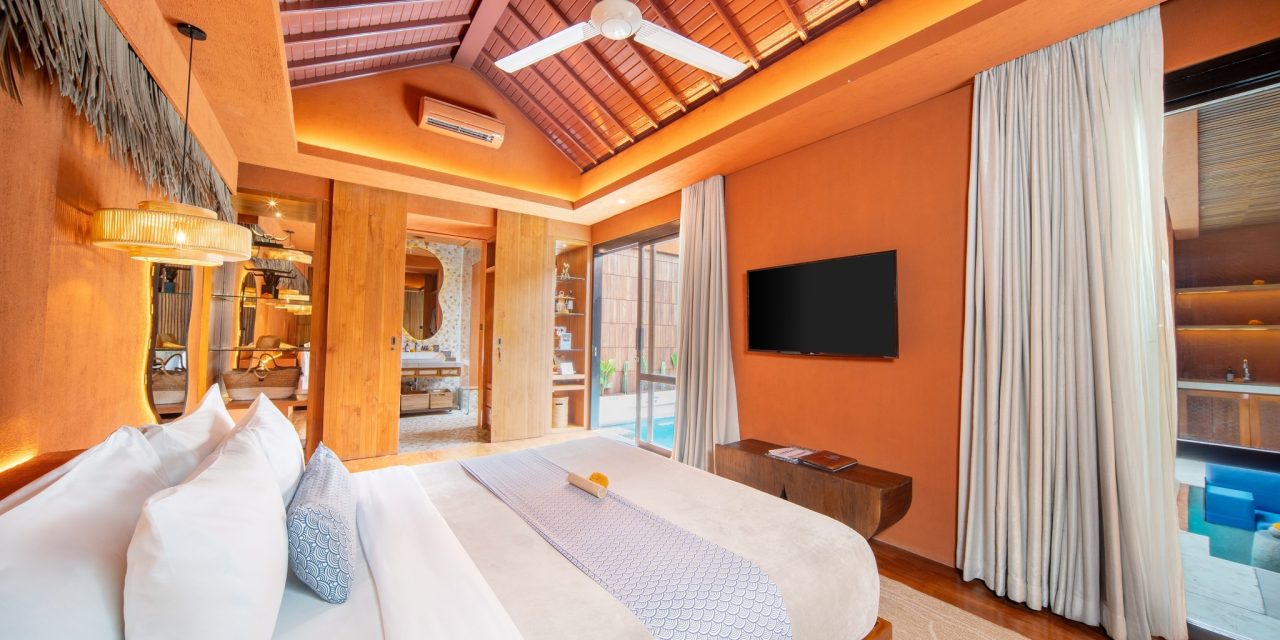Ah, Bali. The mere mention of this paradise conjures up visions of vibrant rice paddies, stunning sunsets over glistening beaches, and the hum of a creative community of wanderers. As a digital nomad, Bali is not just a destination; it’s a way of life that inspires productivity and creativity. But one of the first challenges you’ll likely face in this tropical haven is securing long-term accommodation. In my own pursuit of a comfortable and inspiring place to call home during my Bali adventure, I learned a thing or two that I’d love to share with you.
Why Bali? The Digital Nomad’s Dream
Before we dive into the nitty-gritty of finding accommodation, let’s explore why Bali has become a hotspot for digital nomads. For starters, the island offers an incredible lifestyle: co-working spaces that buzz with innovative thinkers, organic cafes serving up healthy delights, and a laid-back culture that encourages you to slow down and truly enjoy life. My own journey began in a co-working space in Canggu, sipping on a fresh coconut while catching up on emails. I quickly realized that to truly enjoy this lifestyle, finding the right place to stay was essential.
The Types of Long-Term Accommodation in Bali
When considering your options, it’s noteworthy that Bali caters to diverse preferences — from chic villas to cozy homestays. Here are a few types of accommodation you might consider:
1. Villas: The most popular choice among digital nomads. They often come with private pools and stunning views. I stayed in a beautiful two-bedroom villa in Ubud that had a breathtaking view of the jungle and a peaceful vibe that helped me focus on my work.
2. Homestays: For a more cultural experience, homestays offer a glimpse into local life. My friends opted for a homestay in Kerobokan and enjoyed family dinners with their Balinese host, which not only was cheaper but also enriched their cultural experience.
3. Guesthouses: Budget-friendly, guesthouses often provide a communal atmosphere. I found a fantastic guesthouse in Seminyak where I met fellow travelers, sharing tips and stories over breakfast.
4. Shared Spaces: As a nomad, living with others can be a great way to network. A shared villa in Canggu allowed me to make unforgettable friendships while sharing living costs.
The Search Begins: Where to Look
Now that you have an idea of what to look for, where do you begin your search? Here are some tried-and-true platforms that helped me and many of my friends secure our Bali homes:
1. Airbnb
While Airbnb might be more known for short stays, many hosts offer long-term rental discounts. They often have beautiful listings that you can negotiate for price. I managed to snag a lovely apartment in Ubud for a fraction of the price just by asking for a long-term rate.
2. Facebook Groups
One of the best ways to find local accommodation is through Facebook groups like Bali Expats or Bali Digital Nomads. You can not only find listings but also gather recommendations and advice. I remember browsing these groups while house-hunting; one post led me to discover a beautiful villa that wasn’t listed on traditional rental sites.
3. Local Real Estate Agencies
If you’re looking for something more formal, don’t hesitate to get in touch with local real estate agencies. They can help you navigate the process, especially if you’re unfamiliar with local customs and regulations. I had a helpful real estate agent walk me through the legalities of long-term leases, ensuring everything was above board.
4. Word of Mouth
Sometimes, the best recommendations come from fellow nomads. While sipping coffee at a café, strike up a conversation with other expats; you never know what inside scoops they might share about available places. I once found a rent-free opportunity in exchange for helping someone with their marketing!
Negotiating Your Lease
Once you’ve found a place, the fun part begins: negotiating your lease. Be prepared to discuss the rent, maintenance responsibilities, and the duration. It’s common in Bali to negotiate terms, so don’t be afraid to ask for a lower price if you’re able to commit to a longer lease. When I negotiated my rental, I was upfront about my plans to stay for several months, which made my landlord more willing to lower the price.
Practical Tips for Settling In
– Understand the Area: Explore neighborhoods before making a commitment. While Canggu is popular for its vibrant community, Ubud offers tranquility, and Seminyak is ideal for those who crave nightlife. Choose a location that aligns with both your lifestyle and work needs.
– Get to Know the Locals: Building relationships with your neighbors and local businesses can lead to better deals and insider advice. I became friends with my local warung owner, who not only served great food but also knew about upcoming rental opportunities.
– Be Mindful of the Weather: If you’re planning to stay during the rainy season, make sure your accommodation is equipped for it – like having proper drainage or being above flood levels. This wasn’t an issue for me, but I heard stories from friends who experienced a “surprise” indoor pool situation!
– Keep Your Tech in Check: Ensure that your home has reliable Wi-Fi, as it’s essential for working remotely. Most places will advertise their internet speeds, but it’s always best to test it out during your initial visit.
Embracing the Bali Lifestyle
Finding long-term accommodation in Bali can be challenging, but it’s also part of the adventure. Once you settle into your new space, take the time to explore this beautiful island. Spend weekends at the beach, visit temples, indulge in yoga classes, or hike a volcano. You’ll discover that the journey to finding your dream home is just the beginning of your unforgettable experience as a digital nomad in Bali.Remember, Bali is more than just a spot on the map; it’s a vibrant community filled with opportunities, and it’s waiting for you to become a part of it. So pack your bags, grab your laptop, and embrace this new chapter of your life!Happy travels and happy renting!






